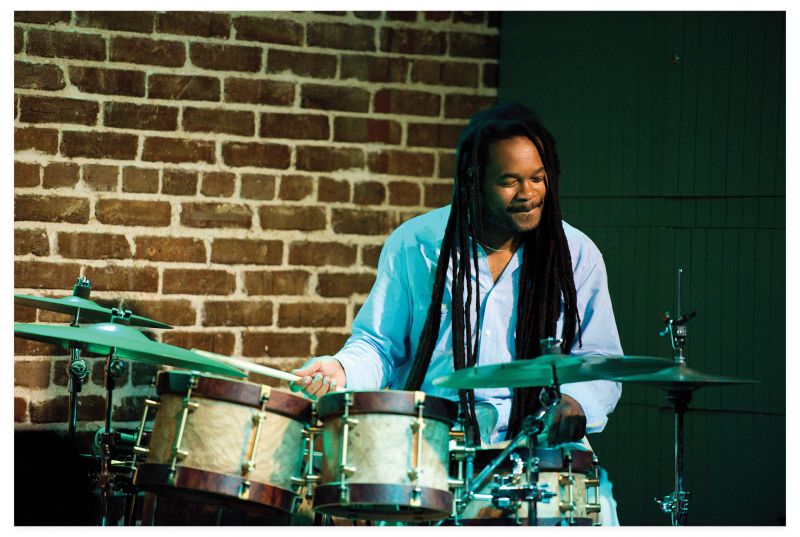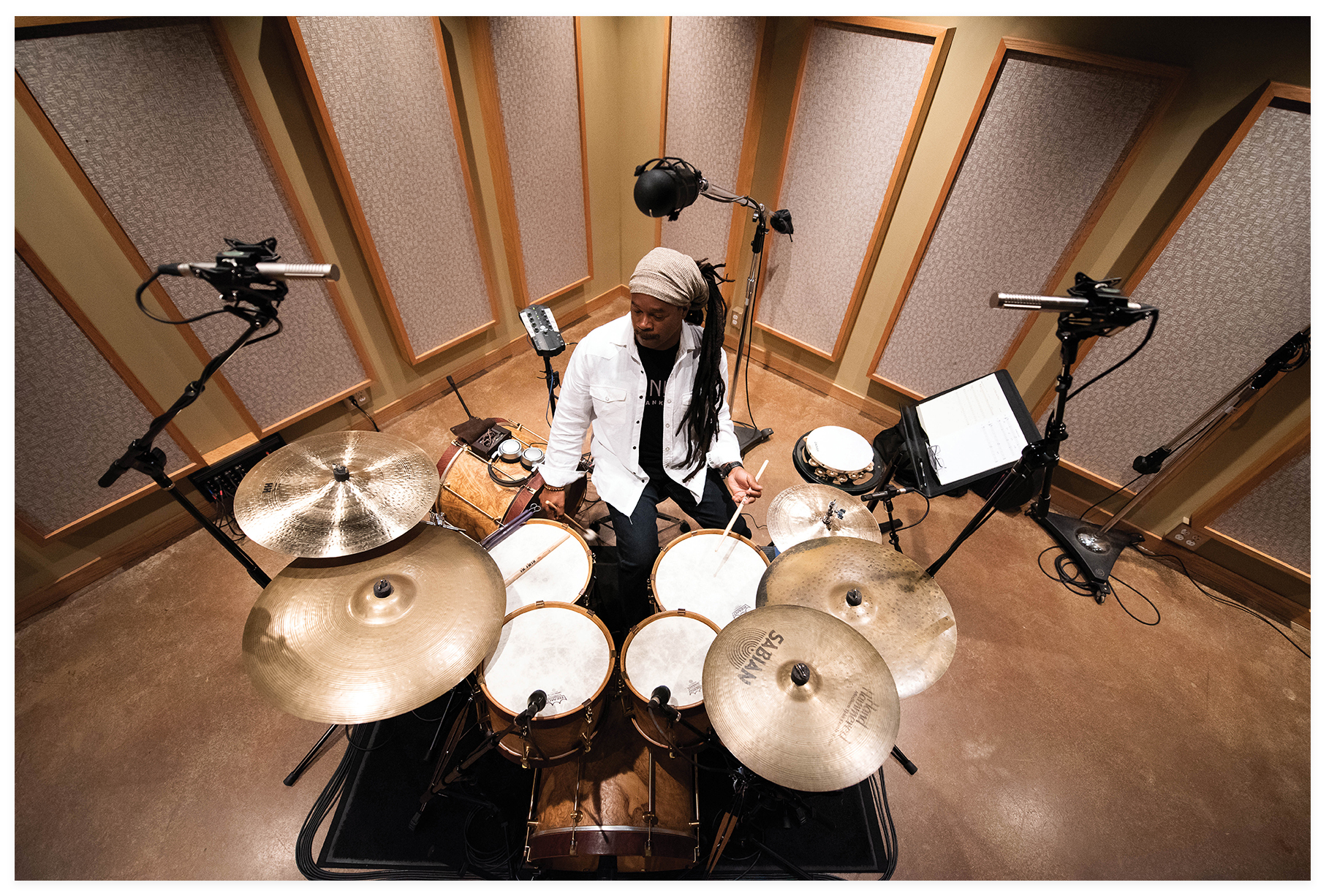The Ranky Tanky drummer collaborates with Etienne Charles and Charlton Singleton and the Kronos Quartet

College of Charleston graduate and Ranky Tanky drummer Quentin Baxter collaborates with Etienne Charles and Charlton Singleton for two different Spoleto performances this month.
“My mom taught us that drumming is a spirit,” says Quentin Baxter. “If you have a bad attitude, the music’s going to have a bad attitude.” Growing up, Baxter and his brothers played every Sunday (and several weeknights) at churches in North Charleston and the Upper Neck. Their drumming wasn’t a performance—it was in service to God, the congregation, and the music itself.
The two-time Grammy winner brings that spirit to his role as the rhythm-keeper in Ranky Tanky, the quintet that shares jazzy riffs on Gullah spirituals on international stages. He’s the beat behind jazz singer René Marie (he played his first NPR Tiny Desk concert with her in 2016) and the producer-in-residence at Truphonic Recording Studios, where trumpeter Etienne Charles recorded the “Gullah Roots Suite” that he’ll introduce at Spoleto Festival USA on June 4. It’s one of two Spoleto performances for Baxter this year, along with another Gullah-rooted debut: a new suite by trumpeter Charlton Singleton, performed with the Kronos Quartet. We sat down with Baxter at Truphonic to talk about his storied career, ongoing inspirations, and upcoming shows.
Appreciating Gullah Culture: These rhythms were in Duke Ellington’s band. They’re in Count Basie’s band. They’re in my recordings with René Marie. I get to be myself. What’s special about Ranky Tanky is that it’s the first secular celebration of Gullah culture with intention. This music is usually presented in church, and we’ve been able to reach beyond those borders without forsaking the spirituality or the message. Today, Gullah culture is not only known, it’s celebrated and championed.
How Playing in Churches Shaped His Performances: Playing music has the potential of manifesting what a musician might be experiencing in the moment. However, playing music could also be transcending; suggesting better resolve, ideas, and spaces. I believe if anyone is to feel better after a performance, it should at least be me! I’m the first partaker of the very experience I showed up to provide for others. Live music is a purposeful reality.
Counting It Out: You walked in here without counting, because you’re savvy about walking. But walk down the streets of Charleston, and the sidewalks will get your attention. You can trip and fall flat. Even when I’ve memorized a piece, I’m still reading the chart in my head, four or eight bars ahead. If you’re not counting, you will soon be found out. There’s only freedom in structure.

“Gullah Roots Suite”with Etienne Charles: We met at the Atlanta Jazz Festival, and he immediately became a little brother to me. He’s from Trinidad, and he sounds like some cousins of mine. When you meet someone and the connection is undeniably real, you start talking about music and playing rhythms. Before we did the Gullah suite, he did the horn arrangements for René’s I Wanna Be Evil and Sound of Red albums. We work together every chance we get.
His Approach to Production: My job is to make musicians feel comfortable. My agenda comes last. It’s invited to the project, but it’s not about me. I create a structure where creativity can flow. Without structure, ideas are just running wild. You come to the table with ideas that we harness and capture. Recording is a microscopic view of what you’re doing, but we’re just snapping a photograph of today. You look sharp, and the magic is capturing it in a way where you feel the expression.
On Charlton Singleton: He’s a brilliant composer and a brilliant mind. I’m honored to be a little piece of the puzzle. I’ve listened to the Kronos Quartet for years, and it gives me goose bumps that I’m going to be playing with them. It’s incredible to be a part of what’s curated at Spoleto and to walk the streets of Charleston after a performance and have conversations with people about their experiences. Festivals enhance our lives, and we need things that bring us together, now more than ever. Music and art are what we have that does that.
If you go: See Baxter perform a world premiere piece with Singleton and the Kronos Quartet on June 2 at the Charleston Music Hall. On June 4, he plays with Charles at the Cistern Yard.
Feel the Beat - Watch Baxter explain the rhythmic patterns in Gullah music in this video produced for the Library of Congress: